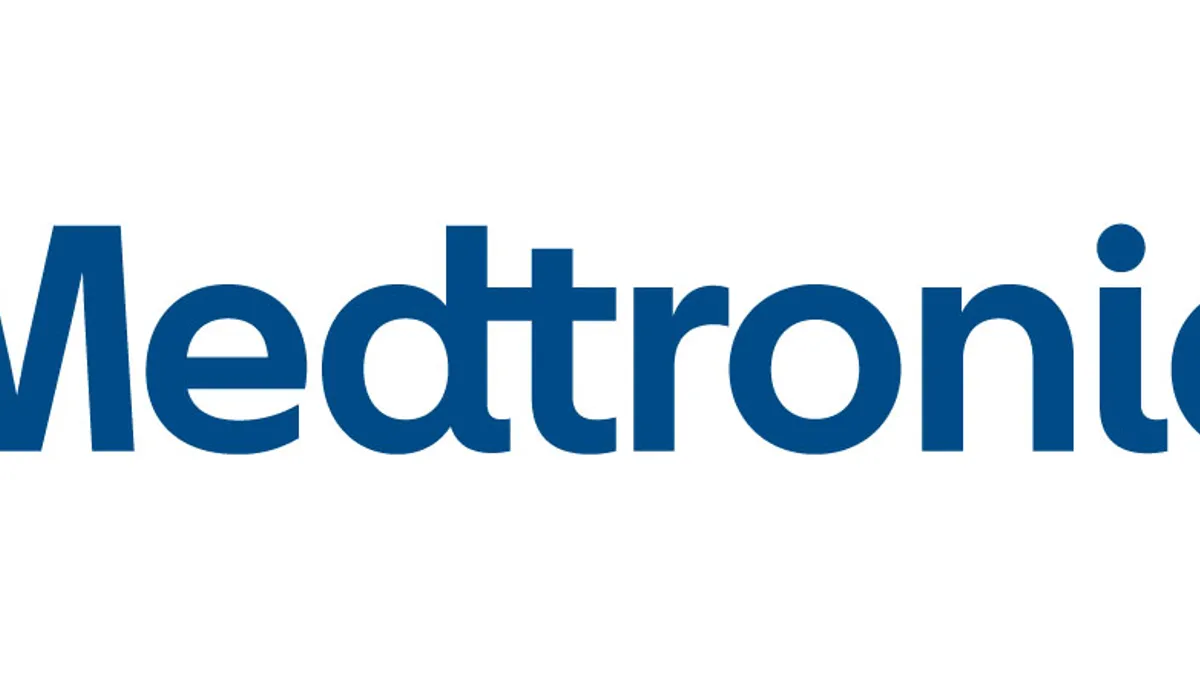Dive Brief:
- Medtronic Friday released results of an analysis showing blood pressure management helped reduce the rate of serious strokes in patients not candidates for a heart transplant implanted with its left ventricular assist device system as a destination therapy.
-
The medtech giant is looking to reverse the tide of declining sales for its HeartWare HVAD device, which have taken a hit since Abbott got destination therapy approval from FDA in October. That came months after publishing clinical trial data indicating its HeartMate 3 LVAD was associated with lower stroke rates than the Medtronic device.
-
Medtronic also said it has initiated two post-approval studies to examine how to improve patient outcomes through best practices in blood pressure management, anticoagulation/antiplatelet therapy, and implant procedures.
Dive Insight:
Medtronic entered the LVAD market in 2016 through its $1.1 billion acquisition of HeartWare. Abbott gained its LVAD technology through the acquisition of St. Jude Medical, completed in 2017, which bought Thoratec in October 2015 for $3.3 billion.
Medtronic in February reported sales of its LVADs plunged 40%, with CEO Omar Ishrak attributing the sharp drop to market share loss and heart transplant guideline changes.
A left ventricular assist device is a mechanical pump implanted in patients with advanced heart failure to help the left ventricle pump blood to the aorta and through the rest of the body. It can be used as a bridge to transplant until a donor heart becomes available or as a destination therapy for patients when all other treatment options have not effectively managed heart failure.
Medtronic said its retrospective analysis using data from the Endurance and Endurance Supplemental trials showed freedom from disabling stroke at two years was 91% in the HVAD group. The analysis demonstrated a 23% reduction in total strokes, a 36% reduction in disabling strokes, and a 39% reduction in stroke-related mortality in patients in the Endurance Supplemental HVAD arm compared to those in the original Endurance trial HVAD arm.
The Endurance trial demonstrated noninferiority of Medtronic's HeartWare system on stroke-free survival at two years, compared to Abbott's HeartMate 2. The Endurance Supplemental Trial, however, did not meet its primary endpoint, failing to demonstrate noninferiority of the HeartWare device to the HeartMate 2 on the rate of neurologic injury at 12 months.
"This analysis shows that stroke severity is an important determinant of outcomes, and the use of the HVAD System with a guidelines-based blood pressure management strategy can, in addition to reducing overall stroke rates, reduce the occurrence of disabling stroke and improve survival in patients who experience strokes," Jeffrey Teuteberg, associate professor of medicine at Stanford University, said in a press release.
Medtronic said it would further evaluate the safety and effectiveness of the HVAD system in real-world clinical practice in two observational studies. The first, called Destination Therapy Post Approval Study (DT PAS), will follow 300 newly implanted patients up to five years. The primary objective is long-term, complication-free survival over two years.
A second study, called Apogee, will include DT PAS patients who consent to an additional heart failure management protocol and data collection for one year. The primary objective is to understand how blood pressure management, anticoagulation/antiplatelet therapy and implant procedures affect the 12-month rate of overall major adverse events, including infection, bleeding, device malfunction, stroke or death.











